If you’re an aspiring nurse, passing the NCLEX is essential to becoming a registered nurse. The exam is challenging, but many resources and strategies can help you succeed. Here are some of the best tips for acing the NCLEX.
Question Analysis and Understanding
- Read Each Question Carefully. Take your time to read and comprehend each question thoroughly. Identify the keywords and understand what the question is asking. Misreading a question can lead to choosing the wrong answer.
- Rephrase the Question. Put the question into your own words. This can help clarify the core issue and focus on what is being asked. By simplifying the question, you can better understand what is required.
- Identify Keywords. Pay attention to critical keywords in the question and answers. Words like “first,” “initial,” “best,” and “most important” can guide you toward the correct choice.
- Look for Grammatical Inconsistencies. Eliminate answers that do not fit grammatically with the question stem. The correct answer should be consistent with the question’s grammar and phrasing.
- Identify Associated Words. Look for words in the answers that are closely related to words in the question stem. This can provide clues to the correct answer.
- Assume Ideal Conditions. For the purposes of the NCLEX, assume that the healthcare facility has all the necessary resources and staff. This allows you to focus on the best possible care without considering real-world limitations.
- Go Back to Basics. When faced with a difficult question, draw upon your fundamental knowledge. Generalize to other situations if you are unfamiliar with the specific condition.
- Beware of Absolutes. Be cautious with answers containing absolutes like “always,” “never,” “all,” and “none.” These options are rarely correct because few things in healthcare are absolute.
- Focus on Patient Needs. The correct answers often revolve around meeting the patient’s needs effectively. Consider the patient’s well-being and prioritize their immediate requirements.
Test-Taking Strategies
- Trust Your Intuition. Your first instinct is often correct. If you have a strong feeling about an answer, trust it unless you have a clear reason to change it.
- Read Each Answer Choice Thoroughly. Before selecting an answer, ensure you read all the choices. Sometimes the most correct answer is not immediately apparent and requires consideration of all options.
- Practice Select-All-That-Apply (SATA) Questions. These can be particularly challenging, so practice them frequently. Approach each option as a true/false statement to help decide if it should be selected.
- Understand the Scoring System. The NCLEX doesn’t penalize for some question types so make sure to answer every question. Even if you’re unsure, an educated guess is better than leaving a question blank.
- Prepare for Different Question Types. The NCLEX includes multiple-choice, multiple-response, fill-in-the-blank, hot spots, and drag-and-drop questions. Practice with each type to build familiarity and confidence.
- Be Mindful of the Clock. While it’s important not to rush, also be aware of the time. Keep a steady pace to ensure you can complete the exam within the allotted time.
- Develop a Test-Taking Strategy. Decide on a strategy for how you will approach the exam, including how to handle difficult questions and when to take breaks.
Time Management and Exam Strategy
- Pace Yourself. Manage your time wisely during the exam. Don’t spend too much time on any one question. Move on and return to difficult questions if you have time.
- Double-Check Your Answers. After selecting an answer, verify it against the question stem. Ensure that your choice directly addresses the question.
- Answer Every Question. It’s important to answer every question, even if you have to guess. Unanswered questions are automatically marked incorrect, so make an educated guess if necessary.
- Simulate Exam Conditions. Practice taking full-length NCLEX practice tests under exam conditions. This helps you get accustomed to the timing and pressure of the real exam.
- Take Care of Logistics. Make sure you know the exam location, time, and what to bring on exam day. Being prepared logistically can reduce stress and allow you to focus on the test.
Prioritization and Safety
- Prioritize Patient Safety. Always choose the option that ensures the highest level of patient safety. This is a critical aspect of nursing and is often the correct approach in NCLEX questions.
- Handle Severe or Acute Issues First. Prioritize issues that are severe or acute. Addressing the most critical problems first is a key principle in nursing.
- Avoid Delaying Treatment. Do not choose answers that delay necessary treatment. Prompt action is often crucial for patient safety and effective care.
- Group Similar Diagnoses. When placing patients in rooms, group those with similar diagnoses together. This can help manage care more efficiently and effectively.
Action and Assessment
- Take Action. The NCLEX tests your ability to act in a clinical setting. Never choose an option that involves doing nothing. Active responses that address patient needs are usually the best choices.
- Assess Before Acting. In clinical practice, assessment is a crucial first step of the nursing process. Before implementing any treatment, make sure to assess the patient’s condition. This approach is often reflected in NCLEX questions.
- Identify the Problem First. Understand the question and identify the main problem. Once you know the issue, you can select the most appropriate nursing action to address it.
- Report Anything New or Different. If a question involves patient endorsement, always report any new or different conditions to the next shift. Clear communication is essential for continuity of care.
Decision Making Strategies
- Eliminate Obviously Wrong Answers. Start by removing any answers that are clearly incorrect. This narrows down your choices and increases the likelihood of selecting the correct answer.
- Choose the Least Invasive Option. When faced with multiple procedures, opt for the least invasive one first. This approach is generally safer and is a common principle in medical practice.
- Make Educated Guesses. If you are unsure, make an educated guess. Eliminate at least one incorrect option to improve your chances of selecting the right answer.
- Use the Process of Elimination. Identify the relevant variables and eliminate those that do not fit the condition or symptom described in the question. This can help you narrow down the choices.
- Consider Answer Components. When an answer has multiple parts, eliminate it if one part is incorrect. This reduces the number of plausible options.
- Recognize Commonalities. If two or more answers are similar, the correct choice is often the one that is different. This strategy helps in identifying the outlier that fits the question better.
Study Techniques
- Simulate Exam Day. Before your exam date, do a full mock run. Wake up at the time you’ll need to on the actual day, eat the same breakfast, and wear similar clothing. Taking a practice exam at the same time as your real exam helps you acclimate to the testing conditions and can reduce anxiety on the actual day.
- Familiarize Yourself with the Computerized Test Format. The NCLEX is a computerized adaptive test (CAT). Make sure you are comfortable with the format, including how to navigate through questions and use any provided digital tools or scratch paper.
- Reflect on Practice Test Results. After each practice test, review your incorrect answers to understand why you got them wrong. This reflection helps you learn from mistakes and avoid them in the future.
- Use Visual Aids. Diagrams, charts, and mnemonics can help in retaining complex information. Visual aids are particularly useful for memorizing anatomical parts, physiological processes, and nursing procedures.
- Create a Study Schedule. Develop a study plan that outlines what topics to cover and when. Consistency and structure can improve retention and ensure comprehensive coverage of all necessary material.
- Practice Self-Assessment. Regularly test yourself to assess your knowledge and track your progress. Self-assessment helps identify areas that need more focus.
- Learn from Practice Questions. Use practice questions to familiarize yourself with the exam format and types of questions. This will help build your confidence and improve your test-taking skills. You can start by answering our nursing test banks.
- Review NCLEX Content Areas. Make sure you are familiar with the main content areas covered by the NCLEX, such as safe and effective care environment, health promotion and maintenance, psychosocial integrity, and physiological integrity. Understanding the scope of the exam helps in targeted preparation.
- Take Breaks During Study Sessions. Long study sessions can lead to burnout and decreased retention. Take regular breaks to rest and recharge. Short, focused study sessions are often more effective than marathon study periods.
- Join a Study Group. Studying with peers can provide support, motivation, and different perspectives on challenging topics. Discussing questions and explanations with others can enhance understanding.
- Use Multiple Resources. Utilize a variety of study materials such as textbooks, online courses, review books, and flashcards. Different resources can offer various explanations and reinforce learning.
- Focus on Weak Areas. Identify your weak areas through practice tests and concentrate your study efforts on those topics. Improving on weaker subjects can significantly boost your overall score.
- Stay Updated with NCLEX Changes. Ensure you are aware of any changes or updates to the NCLEX exam format or content. Staying informed will help you adjust your study plan accordingly.
- Ask for Help When Needed. Don’t hesitate to seek help from instructors, mentors, or peers if you’re struggling with particular topics. Clarifying doubts promptly prevents confusion and aids learning.
- Stay Organized. Keep your study materials and schedule well-organized. A structured approach ensures you cover all necessary topics and stay on track with your preparation.
- Set Realistic Goals. Break down your study plan into manageable goals. Setting and achieving smaller milestones can keep you motivated and ensure steady progress.
Health and Well-Being
- Stay Hydrated. Proper hydration is important for cognitive function. Ensure you drink enough water, especially during your study sessions and on the day of the exam.
- Know How to Use Breaks. The NCLEX allows scheduled breaks. Use these breaks to relax and clear your mind. Bring a healthy snack to maintain your energy levels during the exam.
- Take Care of Your Mental Health. The stress of exam preparation can be overwhelming. Practice stress-relief techniques and ensure you take time to relax and unwind.
- Be Kind to Yourself. Remember that preparing for the NCLEX is a challenging process. Be patient and kind to yourself, acknowledging your hard work and progress.
- Maintain a Healthy Lifestyle. A healthy body supports a sharp mind. Ensure you get adequate sleep, eat nutritious meals, and engage in regular physical activity. Good health habits can improve focus and cognitive function.
- Relax and Recover. Give yourself time to relax and recover after the exam. Engage in activities that you enjoy and take a break from studying.
Stress Management and Mental Health
- Stay Calm. Keep your composure throughout the exam. If you encounter a difficult question, take a deep breath and use your strategies to find the best answer.
- Practice Stress Management Techniques. Techniques such as deep breathing, meditation, and mindfulness can help manage test anxiety. Staying calm and focused during the exam can improve performance.
- Visualize Success. Positive visualization can boost confidence. Imagine yourself successfully answering questions and passing the exam. Confidence can impact your test performance positively.
- Stay Positive. Maintain a positive attitude throughout your preparation. Believe in your ability to succeed and approach each study session and the exam itself with a confident mindset.
Professional and Peer Support
- Join Online Forums and Communities. Engaging with fellow NCLEX test-takers online can provide support, insights, and tips. Learning from others’ experiences can be very beneficial.
- Seek Professional Guidance. If possible, get guidance from nursing instructors or NCLEX coaches. Professional insights can provide valuable strategies and boost your preparation.
- Reward Yourself. Set up a reward system for meeting study goals. Rewards can provide motivation and make the study process more enjoyable.
Additional Tips and Strategies
- Stay Current with Nursing Practices. Ensure you’re up-to-date with current best practices in nursing. This includes understanding new guidelines, protocols, and treatments that might be reflected in the exam.
- Develop Critical Thinking Skills. The NCLEX is designed to test your ability to think critically and make sound judgments. Engage in exercises and scenarios that enhance your critical thinking.
- Review Nursing Theories and Frameworks. Understanding foundational nursing theories and frameworks can help answer many NCLEX questions that test theoretical knowledge.
- Stay Flexible. While it’s important to have a study plan, be flexible and adjust as needed based on your progress and any areas of difficulty you encounter.
- Stay Informed About Exam Day Procedures. Know what to expect on the exam day regarding check-in processes, what to bring, and the rules inside the testing center. Being informed can alleviate pre-exam anxiety.
- Visualize Success. Regularly visualize yourself succeeding in the exam. Positive visualization can reduce anxiety and improve performance.
Post-Exam Reflection and Next Steps
- Reflect on Your Performance. After the exam, take some time to reflect on your performance. Consider what went well and what could be improved for future reference.
- Plan Your Next Steps. Whether you passed or need to retake the exam, plan your next steps. If you need to retake the exam, identify areas for improvement and adjust your study plan accordingly.
- Celebrate Your Efforts. Regardless of the outcome, celebrate the effort and dedication you put into preparing for the NCLEX. Recognize your hard work and commitment to your nursing career.
- Seek Feedback. If you need to retake the exam, seek feedback from instructors, mentors, or peers. Understanding where you need to improve can help you better prepare for the next attempt.
- Stay Positive and Persistent. Maintain a positive attitude and remain persistent in your efforts. Success may require perseverance, and a positive mindset can help you overcome any challenges along the way.
We hope these tips help you feel prepared and confident as you tackle the NCLEX! Now, we’d love to hear from you. What are some of your go-to tips and tricks for exam success? Share your insights and help fellow test-takers ace the NCLEX too!

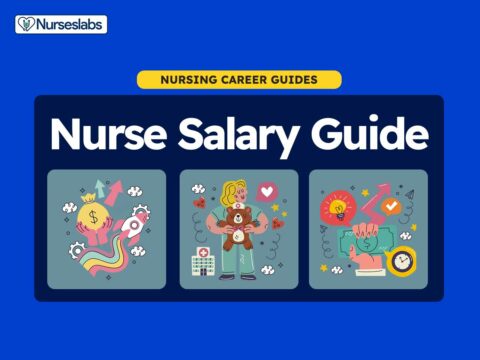

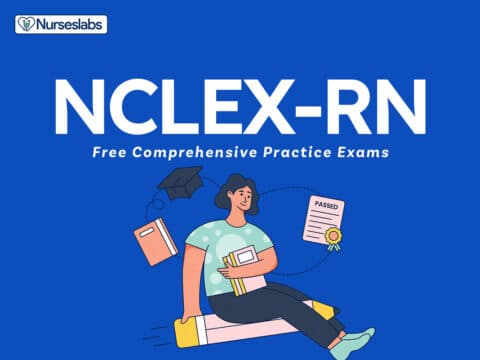
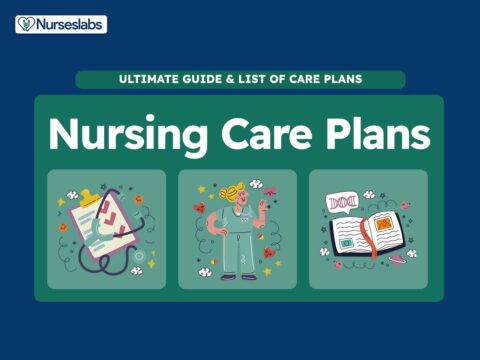
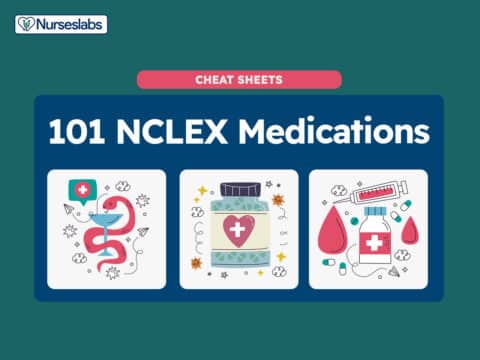





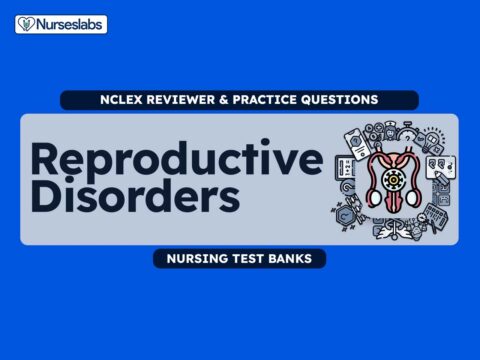
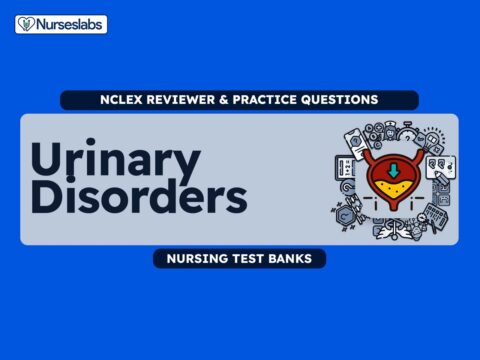

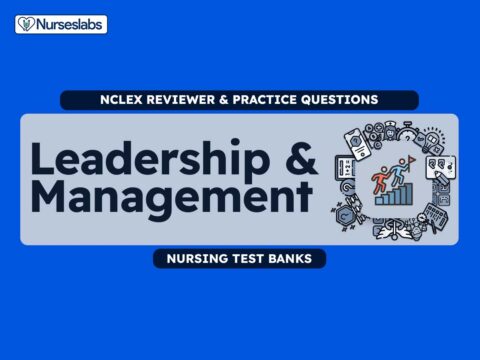

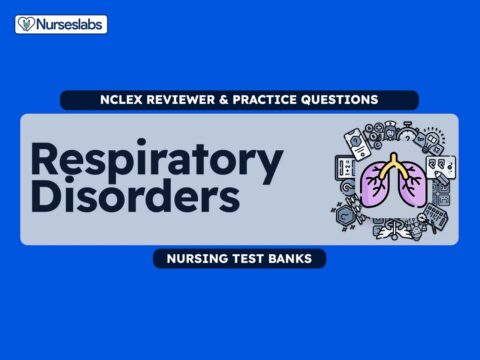






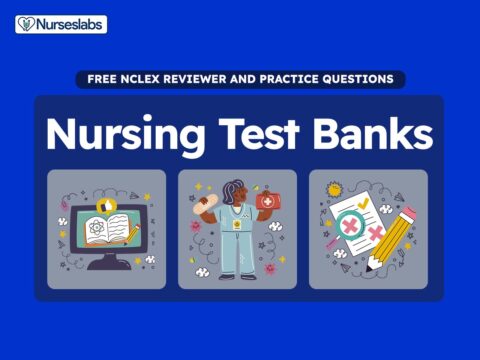

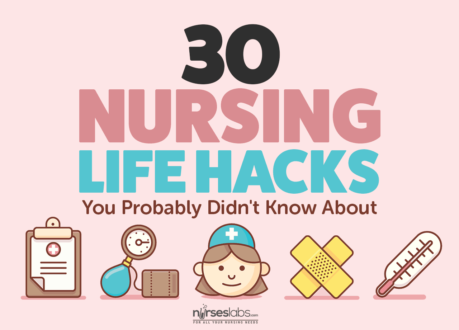

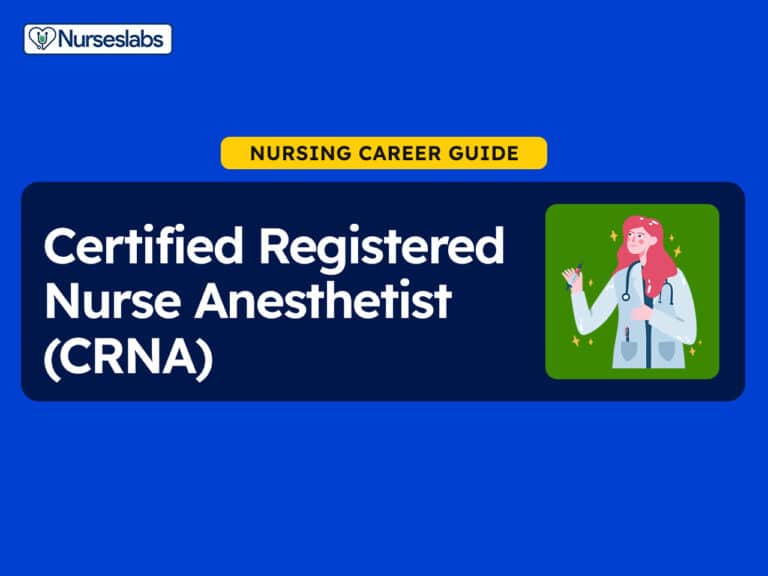
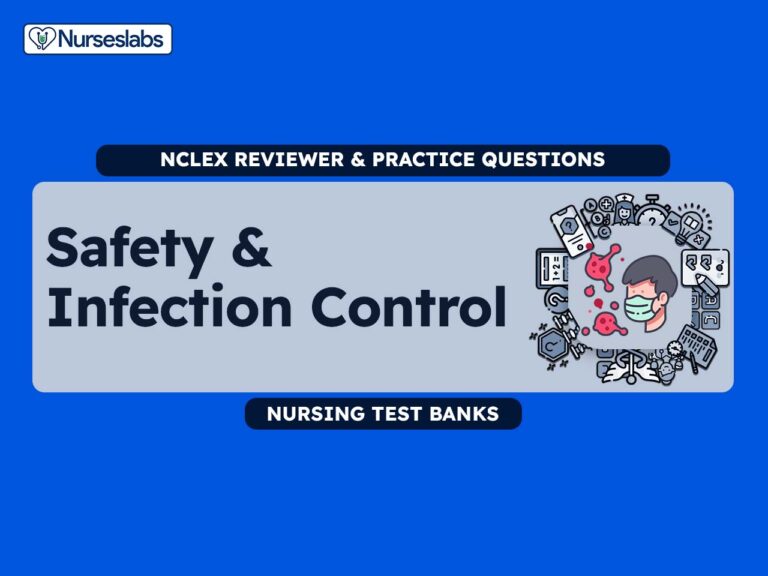




Leave a Comment